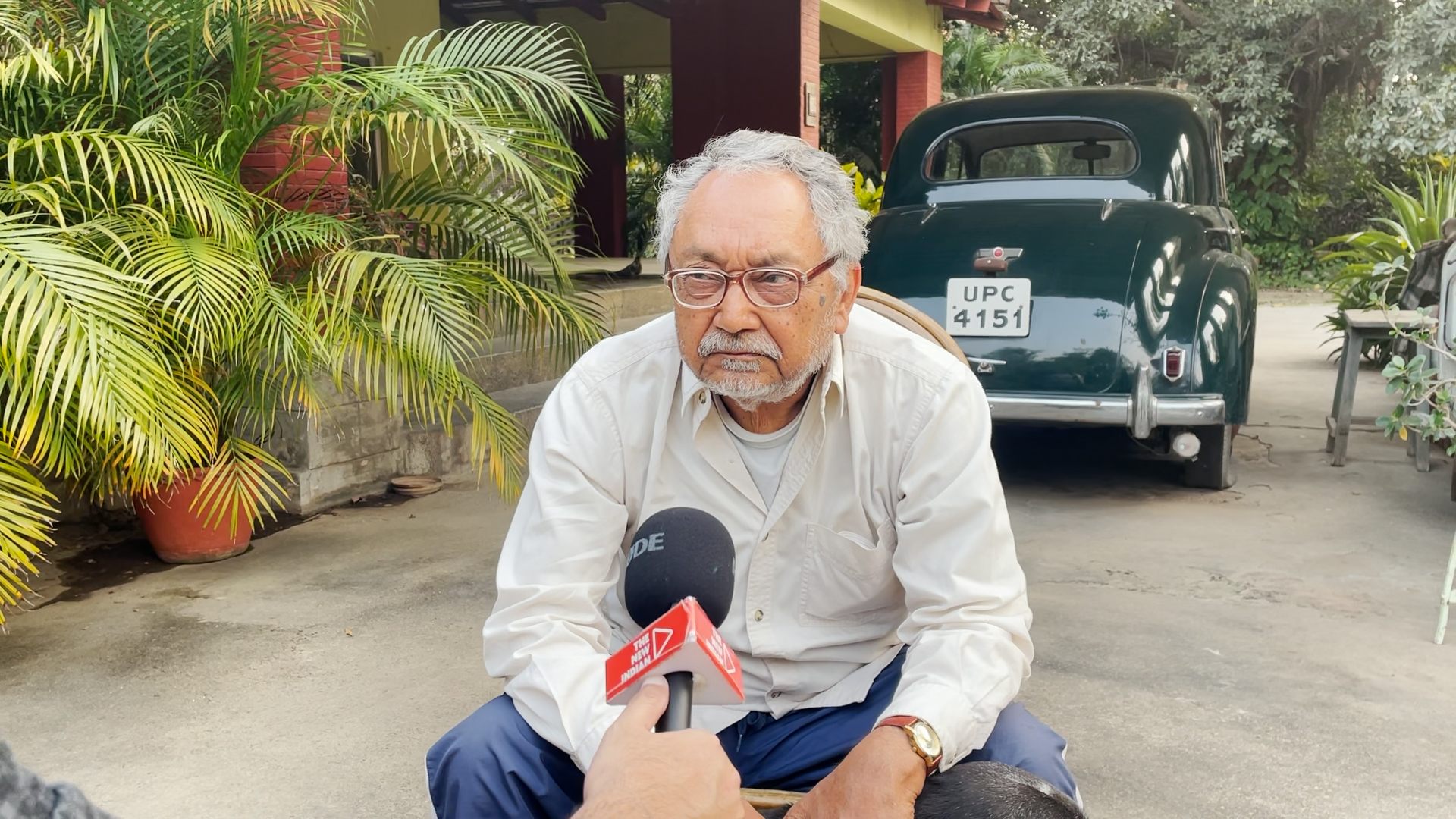PRAYAGRAJ (UTTAR PRADESH): In the leafy boulevards of Prayagraj’s Court Road, Prof Alok Rai, a retired faculty from IIT Delhi and University of Pennsylvania, wears the strong influence of his grandfather and master of Hindi literature, the great Munshi Premchand.
For a bit, Rai turns joyful at Dhoop Chaaon — his splendid bungalow is called that in Prayagraj — that he has to cast his vote on Sunday, as he decides to take an eyeful of his green Bentley, a 1960 vintage model, his father left him with.
Just as the forthright Premchand took his candor during post-independent India over eerie caste divide to the public, Prof Rai, a Rhodes Scholar, turns emphatic on his political leanings and the moroseness that continues to beset the state for more than 100 years.
“I think the most terrible thing is that a lot of issues and social ills that my grandfather wrote about in his time continue to plague the society even today,” he quips while speaking to The New Indian at Dhoop Chaon – in Prayagraj.
“Caste is the major, formative reality in this state, that is my unfortunate state. My grandfather was one of the first people to talk about caste. Two books that are close to me are: Sadgati and Kafan. Kafan is a very well-known book, while Sadgati is lesser-known. Even though Sadgati was made into a film by Satyajit Ray,” Rai adds.
Rai, who is Premchand’s grandson from his first son Amrit Rai, studied at Magdalen College Oxford and served as head of the department of social science and Humanities at IIT Delhi before he returned to Prayagrag, a city where he lives an anonymous life with his wife and former economics professor.
The septuagenarian who brings with him pedagogy of modern English literature, the cultural process in modern India with sharp references to use of language and literature, Rai says he traces the decline of Hindi from its glorious days.
He finds the political leadership in Samajwadi Party’s supremo Akhilesh Yadav a bit more exciting than any contemporary in UP at the moment.
“I’d frankly say that we need a change. We are not going anywhere with the current state of affairs and therefore, we need a change. Whether the change will work, I don’t know. But in my opinion, the process of politics must go on. Because the process of democratisation is such that people can have different opinions — be it by the way of talking, consulting, or disagreeing — all must happen. Anything that endangers democracy is what I am against.”
Asked who has touched his chord or who would he bat for when Prayagraj votes on Sunday as part of the fifth phase of the February 27 election in UP, he makes a thoughtful comment.
“I am too old for it. No one really, no one has touched the chord. But if I talk about being modern, or who has a slight possibility of being modern, it is Akhilesh Yadav. He’s someone who, not on the basis of what he’s done but he has the promise of being able to do something,” says Rai.
But the two happy campers — Kalu (10) and Motu (6) — both labradors nearly attack him for not letting them know who he would finally vote for.









